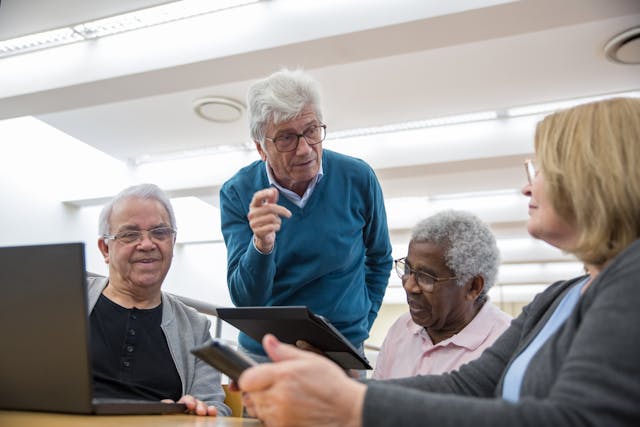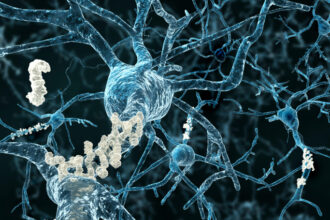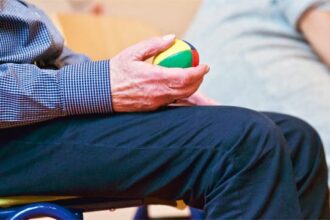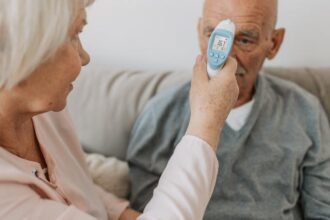A new group-based training tool aimed at preventing dementia integrates collaborative quiz-solving with physical movement throughout a room. This innovative approach, developed under the “go4cognition” project by researchers Vanessa Lissek and Professor Boris Suchan from Ruhr University Bochum, Germany, along with Stefan Orth from Ontaris, has reached market readiness and is detailed in their recent publication in the Journal of Alzheimer’s Disease, available online since April 30, 2024. This tool is designed to make everyone feel included and part of a team.
“In our project, we’ve introduced a novel system specifically tailored for dementia prevention training,” explains Professor Boris Suchan. “Our focus was on creating a tool that fosters group dynamics, yielding impressive results and garnering high participant engagement. Everyone benefits from the collaborative learning experience.”
The system operates optimally with groups of seven to ten individuals distributed across six stations strategically placed around a room, each equipped with a tablet. Participants interact with tablet tasks, ranging from recalling historical facts to planning hypothetical journeys. To complete a task, individuals move to the relevant station and use a baton fitted with a microchip to activate the device. Data on task completion time and accuracy are recorded digitally, facilitating individual performance evaluation.
“Our system allows us to monitor progress and tailor training interventions effectively,” notes Professor Boris Suchan. “Each participant’s performance is tracked via their own baton, ensuring personalised feedback and improvement over time.”
The efficacy of the go4cognition system was validated through a study involving 30 volunteers aged 60 to 89, all diagnosed with mild cognitive impairment—a precursor to dementia. Participants engaged in training sessions twice weekly over six weeks. Remarkably, 70% of them showed no signs of mild cognitive impairment after completing the programme.
Ontaris, the company behind commercialising this group training tool, has already implemented it in retirement homes, including facilities in Oberhausen. “We’ve extended its use to residents without cognitive impairments as a proactive measure,” adds Professor Boris Suchan. This proactive approach empowers individuals to take control of their cognitive health. He envisions potential applications for individuals recovering from acquired brain injuries.
For those unable to access the go4cognition system, Professor Suchan recommends integrating physical and mental activities alongside a balanced diet to reduce dementia risk or delay its onset. The project’s comprehensive review article details these holistic approaches, underscoring their broader impact beyond the immediate scope of the training tool itself.
More information: Vanessa Lissek et al, go4cognition: Evaluation of a Newly Developed Multicomponent Intervention in Mild Cognitive Impairment, Journal of Alzheimer’s Disease. DOI: 10.3233/JAD-230802
Journal information: Journal of Alzheimer’s Disease Provided by Ruhr-Universität Bochum








